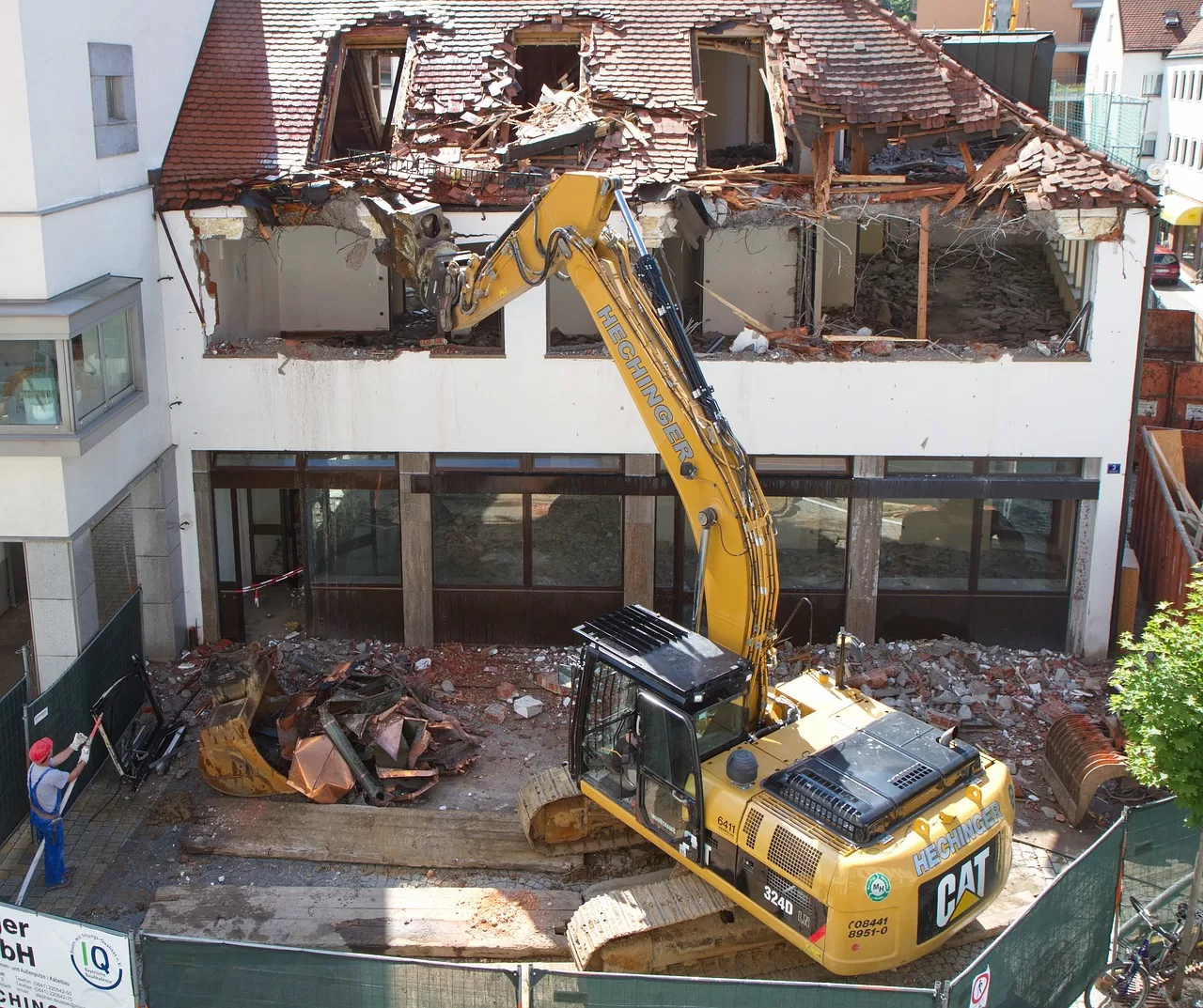Demolition projects require meticulous planning, specialized skills, and the expertise of demolition contractors. Whether you’re tearing down an old building, removing a structure damaged by natural disasters, or renovating a property, hiring a professional demolition contractor is crucial for a smooth and successful project.

In this article, we will explore the role of demolition contractors, the services they offer, and important considerations when hiring one.
What is a Demolition Contractor?
A demolition contractor is a professional who specializes in safely and efficiently bringing down structures. They possess the necessary knowledge, experience, and equipment to handle various types of demolition projects. Demolition contractors ensure that the process is carried out in compliance with local regulations, prioritizing safety, and minimizing environmental impact.
Importance of Hiring a Demolition Contractor
Hiring a demolition contractor is essential for several reasons. Firstly, they have the expertise to assess the structural integrity of the building and determine the safest demolition methods. Additionally, they obtain the necessary permits, ensuring legal compliance.
Moreover, demolition contractors possess the equipment and manpower required to complete the project efficiently, saving time and minimizing disruptions.
Read Also:
Services Offered by Demolition Contractors
Demolition contractors offer a range of services tailored to meet the unique needs of each project. These services include:
● Building inspections and assessments
● Obtaining permits and complying with regulations
● Hazardous material removal
● Structural demolition
● Site clearing and preparation.
● Recycling and waste management
Factors to Consider When Hiring a Demolition Contractor
When selecting a demolition contractor, there are several crucial factors to consider. These include:
● Experience and track record
● Licenses and certifications
● Insurance coverage
● Safety protocols and compliance
● Environmental sustainability practices
● References and client testimonials
● Project timeline and efficiency
● Cost estimates and budgeting
Steps Involved in the Demolition Process
The demolition process typically follows a systematic approach to ensure safety and efficiency. The steps involved include:
- Initial assessment and planning
- Obtaining necessary permits and approvals
- Disconnecting utilities and services
- Removal of hazardous materials
- Structural demolition using appropriate techniques.
- Sorting and recycling debris
- Site clearance and final cleanup
- Safety Measures in Demolition Projects
Safety is of paramount importance in demolition projects. Demolition contractors prioritize safety through various measures, including:
● Conducting thorough risk assessments
● Implementing proper site security and access control
● Providing safety training to workers
● Using personal protective equipment (PPE)
Environmental Considerations in Demolition
Demolition projects can have a significant impact on the environment if not properly managed. Demolition contractors are aware of these concerns and take measures to minimize environmental impact.
They prioritize sustainable practices such as salvaging materials for reuse, recycling debris, and disposing of hazardous materials safely. By employing eco-friendly demolition methods, contractors contribute to reducing waste and conserving resources.
Tools and Equipment Used by Demolition Contractors
Demolition contractors utilize a wide range of specialized tools and equipment to carry out their work efficiently and safely. Some common equipment used in demolition projects include:
● Excavators and bulldozers for structural demolition
● Wrecking balls and hydraulic breakers for large-scale demolitions
● Concrete crushers and pulverizers for crushing and recycling concrete
● Skid steer loaders and backhoes for site clearing and preparation
● Dust suppression systems to control airborne particles
● Safety equipment such as hard hats, gloves, and safety harnesses
Cost Factors in Demolition Projects
The cost of a demolition project depends on various factors. These factors include the size and complexity of the structure, the presence of hazardous materials, the location, accessibility, and the desired timeline for completion. Demolition contractors assess these factors and provide detailed cost estimates that cover labor, equipment, permits, waste disposal, and any additional services required.
Choosing the Right Demolition Contractor
Selecting the right demolition contractor is crucial for the success of your project. Consider the following when making your choice:
● Research and compare multiple contractors based on their experience, reputation, and services offered.
● Request and evaluate references from previous clients to assess their reliability and quality of work.
● Verify their licenses, certifications, and insurance coverage to ensure they comply with legal and safety requirements.
● Discuss your project requirements and timelines to ensure they can meet your expectations.
● Obtain detailed cost estimates and compare them while considering the contractor’s track record and expertise.
Case Studies: Successful Demolition Projects
Examining successful demolition projects can provide valuable insights into the capabilities of different contractors. Look for case studies or examples where demolition contractors have executed projects similar to yours efficiently, safely, and within budget. These case studies can help you gauge their expertise, problem-solving abilities, and attention to detail.
Conclusion
Hiring a professional demolition contractor is essential for safely and efficiently completing demolition projects. These experts possess the skills, experience, and equipment necessary to handle demolitions while adhering to legal requirements and environmental considerations.
By selecting the right demolition contractor, you can ensure the success of your project and mitigate potential risks.









